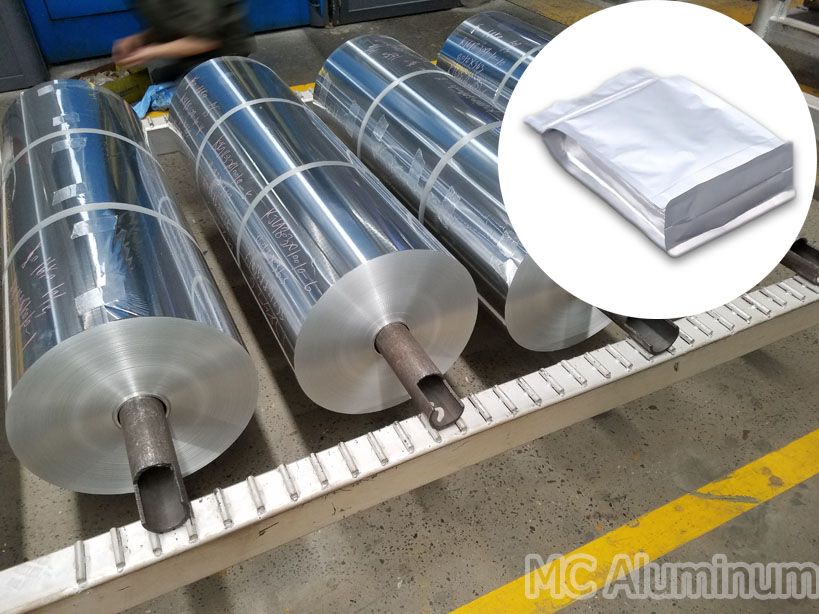Soft packaging aluminum foil is widely used in packaging fields such as food, medicine, and daily chemical products. As people's requirements for food safety and hygiene become higher and higher, the demand for aluminum foil for soft packaging is also increasing year by year. At the same time, with the continuous innovation of technology and production processes, the performance and quality of aluminum foil for soft packaging are also constantly improving. Its quality directly affects the safety and preservation effect of the product, so there are strict quality requirements during production and use.

Soft packaging aluminum foil quality requirements:
1. Thickness uniformity
Requirement: The thickness of the aluminum foil must be uniform, usually between 6μm-50μm, and the common thickness is 6μm-12μm.
Testing standard: Use a thickness measuring instrument to ensure that the thickness error is within ±3%, and avoid local excessive thinness or excessive thickness.
2. Surface quality
Smoothness: The surface of the aluminum foil must be smooth, without obvious creases, spots, oxides, dust or other impurities that affect the appearance.
Requirement: No pinholes: The diameter of the pinholes is less than 0.3mm, and the number cannot exceed 100 per square meter. Pinholes are common defects in aluminum foil materials and should be avoided as much as possible, especially when packaging medicines and foods, as pinholes will affect the sealing.
Inspection standards: Ensure surface finish through visual inspection and professional inspection equipment, without pinholes and other defects.
3. Mechanical properties
No deformation or cracking at high temperatures, 6b=80-9OMpa, $>1.0%, surface water brushing test reaches "A Grade
4. Chemical properties: It is required to have good oxidation resistance, corrosion resistance, moisture resistance, etc., and it should also have good acid and alkali resistance, oil resistance, etc.
Performance characteristics of flexible packaging aluminum foil:
1. Lightweight: Aluminum foil is light in weight, which reduces the weight of the package and reduces transportation and storage costs.
2. High strength: Adding a small amount of trace elements such as manganese, magnesium, copper, iron, etc. to pure aluminum can make aluminum alloy have good mechanical properties.
3. Strong barrier properties: Aluminum foil has a silvery-white luster, high reflective properties for heat and light, easy to emboss and dye, good moisture resistance, fragrance preservation, freshness, deodorization, insect resistance and other characteristics.
4. Hygiene and safety: Aluminum foil is non-toxic, tasteless, and odorless, and meets the hygiene standards for food contact materials.
5. High and low temperature resistance: Meet the special requirements of high temperature disinfection and steaming
6. Good formability: Aluminum foil is soft and has good plasticity, and is easy to process into packaging of various shapes to meet the packaging needs of products in different forms.
